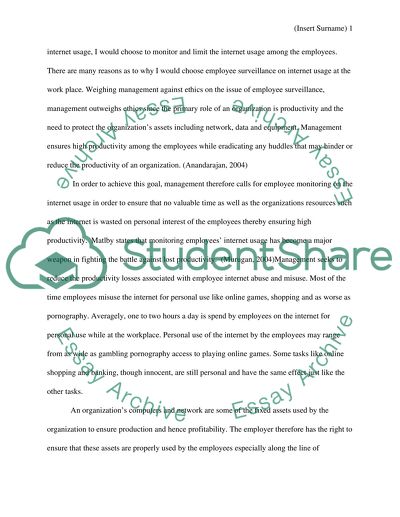Cite this document
(“Employees' Internet Usage in Workplace: To Monitor or not to Essay”, n.d.)
Employees' Internet Usage in Workplace: To Monitor or not to Essay. Retrieved from https://studentshare.org/information-technology/1450138-untitled-paper
Employees' Internet Usage in Workplace: To Monitor or not to Essay. Retrieved from https://studentshare.org/information-technology/1450138-untitled-paper
(Employees' Internet Usage in Workplace: To Monitor or Not to Essay)
Employees' Internet Usage in Workplace: To Monitor or Not to Essay. https://studentshare.org/information-technology/1450138-untitled-paper.
Employees' Internet Usage in Workplace: To Monitor or Not to Essay. https://studentshare.org/information-technology/1450138-untitled-paper.
“Employees' Internet Usage in Workplace: To Monitor or Not to Essay”, n.d. https://studentshare.org/information-technology/1450138-untitled-paper.


